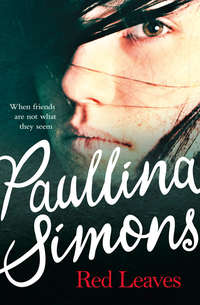
Полная версия
Road to Paradise
“Are you kidding?”
“Not at all.”
“But we’re not interested in baseball!”
“And they’ll know this how?”
“Gina! Don’t you have to be in Bakersfield?”
“Shh!” There was just us two in the room.
“Why do you keep telling me to shh,” I exclaimed, “every time I say the word Bakersfield?”
“Because no one knows I’m going there. I told them I was just going with you for the ride. That you wanted some company. This is what friends do. That’s why they think there’s no hurry.”
What could I do but shake my incredulous head? “I thought you wanted to get to”—I waved my hand around—“as soon as possible? To get to him?”
“Why do you keep referring to Eddie as him?” she asked, her blue eyes narrowing.
“As opposed to what?”
“As opposed to Eddie.”
“He’s not here,” I said, taking out my spiral notebook and my Bic pen. “I can refer to someone in the pronoun form when he’s not here. It’s not rude.”
“It’s weird is what it is.”
Oh, that’s not the weird thing, I thought, writing down: Number 1: Must leave, must go, must get going! “Besides,” I said, “why do you say, keep referring to him, as if we talk about him non-stop?”
“Yes, okay, you’re right, you win, you can have the last word.”
“Fine, you can have the last word. So when we go out cruising for boy toys, is your twelve-year-old sister coming with us?”
“She can if she wants,” said Gina. But even Molly refused. We went by ourselves. Gina turned up the radio real loud, and the only discussion we had was about whether or not the Nazis in “Raiders” had been destroyed when they opened the Ark of the Covenant because the Ark was not to be a tool in human hands. Gina maintained it could have been opened and looked at by the good guys.
“Gina, you think if Indy opened that Ark, he wouldn’t have gone up in flames?”
“No, I don’t think he would’ve.”
“He most certainly would. Why did he tell Marion to close her eyes, to not look? They only made it because they didn’t look!”
“You’re wrong. He told her just in case, not because they couldn’t look.”
“You’re so wrong.”
“No, you’re wrong.”
I think the Yankees lost. They could’ve won. It was hard to tell sitting a mile away in the bleachers. Men hit a small ball with a stick, ran about, then the game was over. Everyone around us had too much beer and was therefore unappetizing to Gina.
As we were returning to Aunt Flo’s house, I told Gina we had to leave tomorrow.
“Okay,” she said.
It took us another two days to get out.

Aunt Flo, to help us, I hope, told Gina and me that Aunt Betty, whom Gina hadn’t seen in years and who loved Gina and liked me, too, lived near Toledo which was on the way. “Why don’t you stay with her, save yourselves some money? I’ll call her while you’re getting ready.”
I didn’t want to say that I’d been ready for days. “On the way to where?” I cut in.
“To California.”
“Toledo is on the way to California?” Once more I wished I had a clearer idea of what the U.S. looked like. An adult woman was saying to me Toledo was on the way; what was I going to do? Say excuse me while I skeptically check the map, because I don’t believe you; check the map in front of you, just to prove you wrong? So I said nothing, thereby, with my ignorant silence, tacitly agreeing that Aunt Betty was “near” Toledo.
“Shelby, why do you always look like you know best?” Aunt Flo threw open the map. “Look. Toledo is right off Interstate 80, and you have to take I-80 to California, don’t you?”
Well, now I definitely couldn’t even glance at the map in front of her. “Of course, you’re right,” I agreed. “I got confused in my head.”
“Oh, we’d love to, Aunt Flo,” said Gina. “What a great idea. Aunt Betty’s wonderful. Molly, you want to come with us?”
I widened my eyes. Gina did not (would not?) return my gaze. Wow. Gina really didn’t want to be alone in the car with me. By some miracle, Molly declined. She said she didn’t like Aunt Betty’s companion, Uncle Ned. “He makes me feel weird,” she said. “He is weird. A starer.” She made a yuk sound.
Visibly disappointed, Gina tried to convince her. “He’s not so bad. He’s quiet.”
“Yes,” said Molly. “A quiet starer. Nothing worse. So, good luck with that.”
Finally around noon of the nth day, sunny, possibly a Wednesday, though it could’ve been Friday, I screeched out of the driveway, going from nought to 136.7 in three seconds.
“How can your aunt live in that house with so many yapping animals?” I finally asked, after the radio was the only sound in our car for twenty minutes.
“You know what I think?” Gina said casually, tossing her hair about. “I think you’re not a dog person. You don’t like dogs.”
What was she talking about? I loved dogs. I just didn’t love them in my brand new beautiful yellow car on my all-vinyl black seat, barking for 200 miles, needing to go “potty”. I liked my dogs bigger. And farther away. I liked dogs the way dog people like children.
“You have to give them a chance,” Gina continued, putting on peach lipgloss. She was wearing a white tube top and jean shorts today. “Dogs are wonderful. And therapeutic. Did you know they bring terriers to terminally ill patients in hospitals to comfort them?”
“What? And who’s they?”
“Like my mother said, you should keep an open mind, Sloane. You’re narrow-minded. You’re not open to other ideas.”
“Open to ideas about dogs?”
“No. Dogs as an idea. An ideal of affection and comfort.” What was she talking about? Why did she sound annoyed? I had driven her mother’s dogs, hadn’t I? It wasn’t enough for me to drive them, I was supposed to love them, too?
She put on the radio to drown out the barking silence.
David Soul beseeched me not to give up on us but then Mac Davis begged me not to get hooked on him and Toni Tennille wished things to be done to her one more time. Woof, woof.
Finally I had to know. “So what’s with the dogs? That’s new. Your mom, Aunt Flo. I don’t remember them being like that.”
“Aunt Betty, too,” said Gina. “All the sisters got into dogs. They breed them, sell them.”
“Really?”
“What’s wrong with that?”
“Nothing, nothing at all.” I coughed. “It takes time, though. And what about Hathayoga? Your mom was obsessed with that. She was so into …” I tried to remember the name. “… Swami Maharishi?”
“You mean Baba Muktananda?”
“That’s it.”
“My mother’s moved on from Baba,” said Gina. “She and all my aunts.”
“From Baba to dogs?”
“She keeps busy, makes a little money.” Gina turned her face away from me to the passenger window. “Dogs are kind and loving, gentle creatures.” When Mrs. Reed had discovered Eastern spiritualism, she spent four Christmases in a row trying to convert me. Get in touch with your inner Chakra, Shelby. You are one with everything, and everything is one with you. I kept telling her I could not be converted because that would imply a verting. I’m just trying to open your eyes, Shelby, open your eyes to the truth that’s out there. I listened politely, ate turkey at her house, and opened my Christmas presents.
We were going rather slow on Liberty Street, with strip malls all around, stopping at every light. I didn’t care, I was so happy to be on the road again. Number 1: Leave Glen Burnie at 9 a.m. Number 2: Gas up, buy Cokes, potato chips. Number 3: Keep conversation with Gina light. Number 4: Drive 500 miles to Toledo, OH. According to the map, in one and a half inches we would be near the Appalachian Trail and then the Pennsylvania Turnpike would take us north to I-80. Mrs. Reed and her three sisters had been into the reality of yoga and the oneness of the swami so seriously, they even persuaded their brother, a classics professor at University of Connecticut, to come with them to the Ashram, their upstate monistic Upanishad retreat. How many miles had we gone on Liberty Street, ten? It was one in the afternoon. Gina had taken off her sandals and put her bare feet up on the windshield.
“What happened with the yoga?”
Gina sounded reluctant. “Nothing. The dogs have replaced Baba.”
“Why?”
Looking away into the passenger window, Gina said, “Aunt Ethel killed herself.”
“She did?” I tried to keep the wheel straight. It wasn’t easy.
Gina shrugged. She still wasn’t looking at me. “It was called a car accident. But we knew. A clear blue day, no drugs, no alcohol, no heart attack, and she’d been depressed for years. Really depressed. The Ashram didn’t help one bit.”
“No, of course not,” I muttered, clutching the wheel. “I’m really sorry. I didn’t know.”
“How could you not know? Agnes told everybody.”
“I make it a point,” I said, “to immediately stop listening to anything that’s begins with the word Agnes.”
As we drove past the bars and the tattoo parlors, I thought about Aunt Ethel. She was beautiful, soft-spoken and loving. “Her poor kids.”
“They’re okay. Daughter is grown. The son has a year left of high school.”
“What about the husband?”
“My mother thinks he’s the reason my aunt killed herself.”
I clutched the wheel tighter. I remembered him, with his overgrown beard and intense eyes. He never quite fit in the family celebrations. “What’s he doing now?” I asked carefully.
“I don’t know. We don’t see him anymore. He never liked our family.”
That was true. He always seemed like an outsider. I had thought Aunt Ethel was the only one he actually liked. He looked at her fondly when he said her name. “Ethel.” Yet I also remember feeling there was something slightly creepy about him, the way he stared at me longer than appropriate, the way he tried to engage me in conversation, and how, once, after Ethel and Mrs. Reed were done regaling me with the consciousness of the yogic vision and the attainment of the Moksha, he recited Donne’s poetry to me. I will not look upon the quickening sun/but straight her beauty to my sense shall run/the air shall note her soft, the fire, most pure/waters suggest her clear, and the earth sure.
I had been hoping he was talking about Ethel, beautiful for an aunt, and said nothing, embarrassed under his gaze. I was relieved when I didn’t see him at Easter.
How gravely Gina and I had grown apart, that not a rumor, a rustle had blown my way, not even from scandalous Agnes. “When did your aunt die?” We used to talk about everything. Every day. Not a day would go by without Gina knowing every minute of my life and me knowing every minute of hers.
“A year this November.”
This made me sad, made me think about things I didn’t want to think about—reminders of the past I wanted put away. Here I was, leaving home for parts unknown and still couldn’t leave them behind. Gina and I used to babysit for Jules and Jim, Aunt Ethel’s kids. Ethel would feed us dinner, and then she and her husband would go out to the movies. They had a beautiful house on the water in Rye. They had a boat, their own slip, eighty feet of private beach, a membership to the yacht club, and both the elementary school and Rye Playland were within walking distance. To Gina and me they had seemed to live an enchanted life, but I guess it was more like enchanter’s nightshade. Beautiful on the outside, poison underneath.
“My mom couldn’t forgive the Vedantists for not bringing my aunt any peace or comfort,” said Gina, “when she needed peace and comfort most. See what I mean about religion?”
I didn’t see what she meant, but I did finally begin to notice that nearly every road we crossed was named Divine Way, Mary’s Way, Cross Way, Holy Road, Holy Family Road, Trinity Drive, Spirit Way. And on every corner rose a church, sandwiched between tattoo parlors and a Jack in the Box. Or were the tattoo parlors sandwiched between the churches? The only thing I noticed about the one church remotely near us in Larchmont was that on Monday each week, the bulletin board in the front would change its inspirational message. “JESUS IS THE ANSWER.” “JESUS IS THE ANSWER TO EVERY QUESTION.”
“Gina, look at all the churches. I’ve never seen anything like it. Have you?”
“Well, there aren’t any churches on the Jersey Turnpike. So no. But I wouldn’t have noticed even these had you not mentioned them. I don’t notice things like that.”
“Hmm. Hard to miss.”
Gina must have been thinking troubling things, difficult things—her eyes were unseeing. “What a weird life it must be around here,” she finally said, coming out of her reverie. “What do you think these people do all the time?”
“Well, judging from the road, get tattoos and go to church.”
She laughed. “I’d die if I lived here. Absolutely die.”
I stopped at a light. The road was called St. John’s Path. A white church on one corner, a white church on the other. We waited. There were no more strip malls or Burger Kings. Now, beyond the white spires were rolling fields of green, shivering trees, and sunshine.
“Did you know,” Gina said, “that 57 percent of all people who get tattoos regret them later in life? And that number goes up to 71 percent for women. More men get them, but more women regret them. And tattoos for females are on the rise. Like smoking. Apparently it’s the next trend. Women getting tattooed. Interesting, eh?”
“Yeah, very.” I was only half-listening, trying to figure out a mathematical riddle on the white board.
1 Cross
+ 3 Nails
_________
= 4 Given
I was stuck on the numbers. One plus three did equal four, but what did it have to do with Given? I couldn’t decipher the meaning. Gina glanced at it and instantly said, oh how stupid. It took me another shameful mile to figure it out. Then I felt stupid. And resented her, like it was her fault. But numbers sometimes confuse me. I can’t see past them. RUL8? Master’s Ministry proclaimed I was, but they were praying I wasn’t 2L8.
“I’m a good person, I have nothing to be forgiven for,” Gina said. “I’m so beyond that.”
Didn’t Emma once tell me, when I was preening, that just as you’re about to put yourself on a pedestal for being good, the devil knocks you down with pride right back where you belong. I kept quiet.
Chapel View, Chapel Lane, Chapel Hill. Freedom.
3
The Black Truck
The road wound through the fields. We rolled down the windows, turned up the music, the wind blowing through our hair. The Climax Blues Band yelled that we couldn’t get it right, and Kiki Dee croaked that she had the music in her. It was on Liberty Road, past Freedom, when the Blockheads were hitting us with their rhythm stick and I was flying, showing off my Shelby GT 350 to the blue skies, that I suddenly had to slam on the brakes for a black truck ahead of us.
“God, it’s crawling,” I said. In reality, though, it was probably doing forty. Gina groaned, I groaned. We continued singing, but it was one thing to sing and speed but another to sing at the top of your lungs, slam on your brakes, then dawdle along almost at walking pace.
The medium-sized, four-wheel utility truck in front of us was from the coal mines. Not painted black, but dirty black, covered with tar-like nicotine, its two smokestacks emitting black plumes. What was happening inside that it needed two smokestacks? Not only was it dilly-dallying as if on the way to execution, but it couldn’t stay in its lane. It kept rolling out to oncoming traffic. There was no traffic, but that was beside the point. It was a menace. We stopped singing.
“What’s wrong with him?” I asked.
“Maybe he’s drunk.”
“It’s Wednesday morning.”
“What, people can’t get drunk on a Wednesday? And it’s not Wednesday morning. It’s Tuesday afternoon.”
We passed a billboard, huge black letters on white board. “WILL THE ROAD YOU’RE ON LEAD YOU TO ME?”
“Did you know that reading billboards is responsible for eleven percent of all vehicular accidents?” stated Gina.
“Is that so?” But I wasn’t paying much attention to her or the billboards. I was entirely focused on the increasingly erratic truck. The driver could’ve fallen asleep at the wheel. I gave him plenty of room. No reason to tailgate; a good safe distance is what he obviously needed. We were two car lengths behind.
He had a bumper sticker on the back tail—everyone was so clever in this neck of the woods with their little aphorisms—I speeded up so I could read it: “I DO ME … YOU DO YOU.”
“Oh, ain’t he the comedian.” Gina laughed. “It’s supposed to be I do you, you do me.”
“He frightens me.”
“Ha,” she said. “I like him better already. He says leave me the hell alone and let me tend to my business. That’s priceless.”
“Yes, but what business could he possibly have that he’s weaving all over the road like that?”
“So slow down. Give him some room.”
“Any more room, and I’ll be in another state.”
“Maybe he’ll turn soon.”
“Turn where?” The empty country road stretched between fields and forests.
“Wait, what’s he doing?” Gina said.
At first it looked like he was turning, but he wasn’t. He was stopping. Suddenly and without preamble, his coal-tar vehicle zigzagged to a halt in the middle of the road right in front of us. We had no choice but to stop, too. Like for a school bus. Maybe he was in trouble. I didn’t know, didn’t want to know and didn’t want to be any part of his trouble. I didn’t want to help him. What if he had run out of gas? What if his door opened and he asked us for a ride to the nearest gas station? My insides filled with liquid nitrogen. No way! No rides to weaving strangers driving black trucks.
The passenger door flung open. There was shouting, and suddenly a girl was propelled from the truck onto the grassy edge. She didn’t hop out, she fell yelling, “You bastard! Hey, give me my stuff!” A hobo bag flew through the air, landing heavily on the grass. A man’s hand reached for the door, pulled it violently shut and the truck peeled away, leaving smoking tire tracks on the pavement, black fumes piping furiously out of the stacks. He drove fast now, and straight.
“Asshole!” the girl yelled after him, getting up, dusting herself off. She didn’t seem to be hurt, though I was trying not to look too closely. I put the ’Stang in gear and accelerated, not like the truck—in anger—but in fear. The girl stood, picked up her bag, turned to us, smiled, and stuck out her hitching thumb. She waved with the other hand. She was young, heavily made up, wearing not summer-in-the city shorts, but a white mini-skirt, a small electric-blue halter and lots of flashy costume jewelry. We passed her slowly, pretending like we didn’t even notice her, la-dee-dah. I whispered, “Gina, roll up your window.”
“Why are you whispering?” But before she could turn the crank, the girl called out. “Hey, come on, be Good Samaritans, help a sister in need, will ya? Give me a ride.”
Gina shook her head, I stared straight ahead without acknowledging her, and as we passed, the girl’s hitching thumb morphed into the middle finger to our departing yellow Mustang. “Thank you!” she yelled. I stepped on it, catching her in the rearview mirror walking uphill in high-heeled wedge sandals and her spicy blue halter.
“Who wears sandals like that?” I asked.
“Who wears a skirt like that?”
We drove in silence.
“We couldn’t pick her up,” I said.
“Of course we couldn’t.” Gina glanced at me askance. “What are you even talking about? We made a deal.”
“That’s what I’m saying.”
“Shelby, did you want to pick her up?”
“Slightly less than I want to be scalped,” I returned. The ridiculous part was I now had to stop and look at a map to see where we needed to turn to get on Penn Pike, but I couldn’t stop. I was afraid the girl might pursue me and force me to explain how I promised I wouldn’t pick up hitchhikers, not even a girl my age shoved roughly out of a black truck by angry hands.

I was going eighty on a local road, through fields with mountains up ahead, past abandoned gas stations.
“What’s wrong with you?” Gina asked.
“Nothing.”
“Why are you driving like a maniac?”
Silence again.
“We did the right thing, didn’t we?” I asked.
“About what? Can you stop for a sec and check the map? I don’t see the turnpike signs anywhere.”
We did see another billboard, this one from the American Board of Proctology: GIVING SOMEONE THE FINGER DOESN’T HAVE TO BE A BAD THING.
“I mean, that girl could’ve been trouble, right?” I said.
“Oh, her. Why are you still talking about her?”
We turned up the music. Diana Ross plaintively wanted to know if we knew where we were going to. Gina plaintively wanted to know when she was going to be fed. Having lost my sense of how far we’d come, whether we even were still in Maryland, I made a series of rights and lefts hoping the zigzag would eventually lead me to the toll road that transsected the entire state of Pennsylvania, as per Rand-McNally road atlas. Past a meandering town of antique stores and law firms we drove, past a deserted little town with not even a sandwich place for us to hang our hats, and, still hungry, we left the churches and the placards behind, the girl, too, and drove through the Appalachian Trail, sunlit and hazy, covered with a silken green and gold canopy. I pointed out a street sign that said Applachian Road. “You’d think that since they live here, they’d know how to spell it.” We chuckled at that, and then again at a sign that stated without punctuation: SHARP CURVES PEDESTRIANS 4 MILES.
For four miles we looked for these pedestrians with sharp curves. Liberty Street had long since become Appalachian Trail with the tall filtering trees looking almost yellow with their light green sparklings. After the trail was Hagerstown. The shops along the way seemed too dinky for us. Finally, our long-awaited toll road! With a shopping center and a Subway sandwich place.
At the table I stared blankly at the open map. Gina wanted to know if Toledo was in Pennsylvania. I glared at her over my tuna sandwich. “Toledo is not in Pennsylvania. It’s in Ohio. Everybody knows that. God, Gina.” Why was I so suddenly annoyed?
She shrugged, unperturbed, fixing her hair and applying lipgloss before eating.
“Did you say you were going to school to become a teacher?” I asked disapprovingly. “How are you going to teach little kids if you don’t know something like that?”
“The reason I don’t know it,” Gina said patiently, eating her Cheddar and Swiss on rye, “is because we weren’t taught it. And the reason my kids won’t know it, is because I won’t teach it.”
“But isn’t this something we need to know? Where things are?” I pointed to the state of Pennsylvania. “Look. I want to show you.” For some reason Gina had unreasonably irritated me with her torpid unhelpfulness. I flipped open my spiral, started to write down how far we’d come. I estimated it to be barely sixty miles. And it was nearing three in the afternoon. How in the world was I going to drive another 420 miles to Toledo? When I said this to Gina, I could tell by her glazed-over eyes she thought it was a rhetorical question she had no intention of answering. Her attitude seemed to be: I sit in the passenger seat, you drive, you get me to Eddie. For my part, I sing, pretend to stare at a map, look out the window and give you a little bit of money.
“Gina, you have to help me. I can’t do this on my own. I’m going to get lost.”
“Why would you get lost?” She sounded frankly puzzled. “You just looked at the map.”








